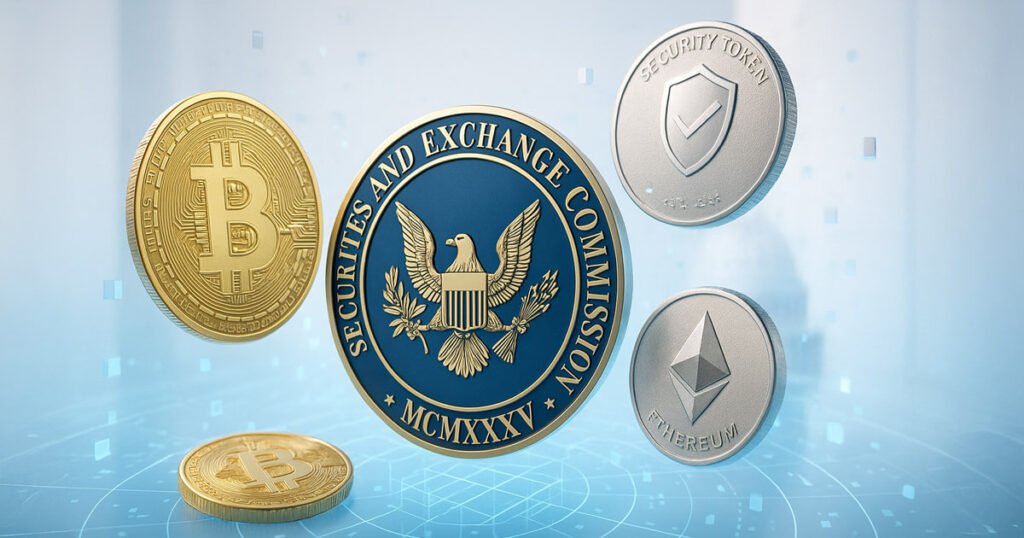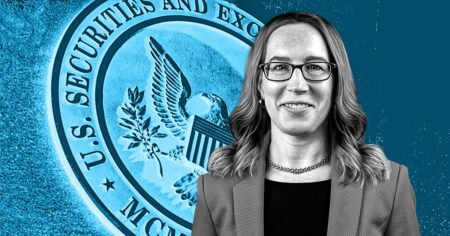SEC’s Review of DLT Exemption Order: A Leap Towards Tokenized Securities
The U.S. Securities and Exchange Commission (SEC) is taking significant steps towards embracing distributed ledger technology (DLT) in the realm of securities trading. SEC Commissioner Hester Peirce announced this potential exemption order during her address at the International Institute for Securities Market Growth and Development on May 8. This initiative aims to facilitate the issuance and trading of tokenized securities, marking a pivotal shift in how firms interact with complex regulatory landscapes.
The Current Framework and Its Barriers
Under the current regulatory frameworks, particularly the Regulation National Market System, firms seeking to implement automated market-making solutions often face daunting challenges. They are typically required to register as broker-dealers, clearing agencies, or exchanges, processes that can be both lengthy and cost-prohibitive. These hurdles discourage many firms from exploring the tokenized securities space. Peirce underscored the need for a more adaptable regulatory approach that aligns with the growing integration of blockchain technologies in financial markets.
Proposed Changes by the SEC
The SEC’s Crypto Task Force is evaluating a conditional exemption that would enable qualified firms to use DLT for trading, clearing, and settling securities without the necessity of registering under traditional frameworks. This proposed exemption signifies a crucial step in lowering existing barriers, thus potentially democratizing access to sustainable market practices. By easing these constraints, the SEC intends to provide firms the flexibility to innovate while incorporating the benefits of modern technology.
Safeguards in Place
While the proposed exemption is promising, Peirce emphasized that it would come with comprehensive safeguards. Any firm granted this relief would be required to adhere to strict guidelines to ensure that investor protection, financial responsibility, and transparency are upheld. For instance, firms must disclose operational details, wallet and custody arrangements, and any specific risks tied to their blockchain environments. These measures are designed to bolster investor trust and create a safer trading ecosystem.
Preventing Fraud and Market Manipulation
The SEC is not merely advocating for innovation; it acknowledges the necessity of robust regulatory oversight. To prevent fraudulent activities and market manipulation in the rapidly evolving landscape of tokenized securities, the agency is considering the implementation of rigorous customer disclosure requirements and monitoring protocols. These initiatives aim to enhance the integrity of trading platforms and reassure investors that their interests are adequately protected.
A Work in Progress
Peirce concluded her remarks by noting that this initiative is still a work in progress, inviting input from market participants and stakeholders. The SEC’s goal is to formulate a commercially viable framework that enables the use of cutting-edge technologies in trading while maintaining stringent protections for investors. As developments unfold, the SEC’s efforts may herald a new era for the integration of DLT in the financial markets, potentially transforming the operational landscape of securities trading.
In summary, the SEC’s proposal to review DLT exemption orders represents a groundbreaking opportunity to innovate within the securities market while ensuring that investor protections remain front and center. As the landscape shifts, firms keen on leveraging blockchain technologies must remain engaged in the process, contributing to a future where financial markets are both advanced and secure.

















